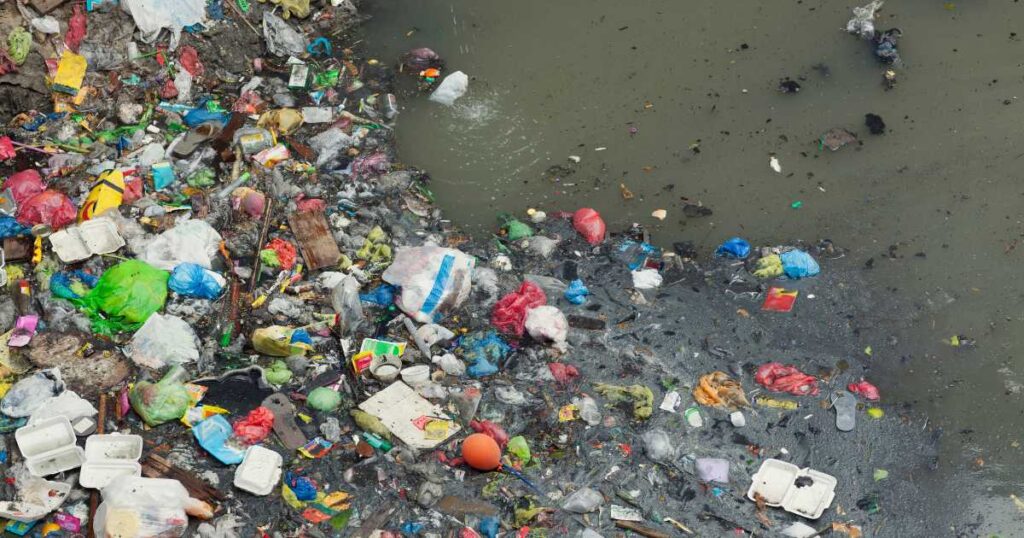Proper waste disposal is key to maintaining a clean, healthy, and sustainable environment. When waste is carelessly dumped, it harms our land, oceans, and air—depleting biodiversity, contaminating water with microplastics, and releasing harmful gases like carbon dioxide into the atmosphere.
It’s crucial to understand why we must prioritize responsible waste disposal, both at home and at work. Let’s dive into how improper waste management causes significant damage to our planet and impacts the environment.
Land Pollution
Land pollution may often be overlooked, but its consequences are far-reaching. The unchecked accumulation of waste degrades soil quality and disrupts local ecosystems. Waste doesn’t simply vanish; it breaks down and spreads, damaging wildlife habitats and posing serious risks to human health.
Picture your favorite parks or natural spaces ruined by litter and contamination. Beyond the environmental harm, this waste jeopardizes the safety and well-being of nearby communities. Therefore, protecting our land is essential for both human and wildlife prosperity. Renting a 15-yard dumpster can assist with proper disposal to prevent landfill overflow.
Water Pollution
We’ve been carelessly discarding waste into oceans and other water sources, transforming them into toxic environments that threaten marine life and human health. Harmful chemicals, once released, easily spread through freshwater sources, making drinking water unsafe and polluting recreational areas like lakes and rivers. The effects are far-reaching—our actions are putting both aquatic species and humans who depend on clean water at risk. Proper planning, such as dumpster rental for projects, can help control waste management effectively.

Air Pollution
Air pollution is a growing global issue, and it’s important to recognize how improper waste disposal contributes to this crisis. Greenhouse gases, primarily responsible for driving climate change, are significantly impacted by waste management practices.
The release of methane from decaying waste plays a crucial role in warming our planet. Many people may not realize that poorly managed waste contributes to these harmful gas emissions, which increase global temperatures and worsen air quality.
Renting a roll-off dumpster reduces the need for burning waste, which pollutes the air.
Climate Change
Pollution is a leading driver of climate change, contributing to the thickening of the ozone layer, melting ice caps, and rising sea levels. These environmental shifts have far-reaching effects—humans face displacement from their homes, and countless species experience dramatic habitat loss due to warming temperatures and flooding.
Our waste management choices directly affect the speed and severity of these changes, making it all the more important to adopt sustainable practices. By understanding the critical role waste disposal plays in the health of our planet, we can take steps to protect it and create a cleaner, safer future for everyone.
Lower Biodiversity
The loss of biodiversity poses a serious threat to the delicate balance of ecosystems. Imagine Earth’s biodiversity as a finely-tuned orchestra—every species plays a vital role. When key species, including plants and animals, vanish due to pollution and habitat destruction, the entire ecosystem suffers.
This disruption can lead to increased disease outbreaks, affecting both wildlife and humans, especially during natural disasters. Biodiversity also plays a crucial role in providing essential services, including pollination, water purification, and climate regulation.
Protecting biodiversity ensures that ecosystems remain resilient and capable of adapting to changes, which is crucial for the health of the planet and all its inhabitants. Promoting waste segregation practices helps minimize this impact.

Dead Zones
Dead zones are areas in the ocean or other water bodies where oxygen levels are so low that marine life cannot survive. These zones often result from nutrient pollution, including runoff from agricultural fertilizers, sewage, and industrial waste.
When waste accumulates in landfills, it releases harmful chemicals that leach into surrounding areas, including groundwater. These contaminants can spread to nearby ecosystems, creating “dead zones” on land as well as in water.
The effects are devastating, with the destruction of local habitats and loss of valuable resources. The more waste we produce and irresponsibly dispose of, the more these lifeless areas expand, threatening the survival of diverse ecosystems.
Plant Death
Pollution from improper waste disposal doesn’t only impact animals; plants, too, face grave risks. When toxic chemicals, heavy metals, and plastics are dumped into the environment, they make their way into the soil, contaminating the land and rendering it inhospitable for plant life.
Rainwater can also carry these pollutants into the soil, poisoning the plants that rely on clean water. Over time, this degradation of the land reduces soil fertility, affecting agricultural productivity and threatening food security.
If we don’t change our waste management practices, we will continue to see devastating effects on plant life, threatening not only natural landscapes but also crops essential for human survival.
Animal and Marine Death
The impact of irresponsible waste disposal on animals, both terrestrial and marine, is profound. Toxic chemicals from industrial waste, plastics, and other pollutants infiltrate ecosystems, leading to widespread harm. For marine animals, plastic pollution is particularly devastating.
Creatures like fish, turtles, and whales ingest plastic waste, leading to poisoning, suffocation, and death. On land, animals can become entangled in plastic debris or suffer from contaminated water sources.
Furthermore, the chemicals released from waste can enter the food chain, ultimately affecting human health as well. We must take responsibility for our waste management practices to reduce harm to animals and preserve biodiversity.
Frequently Asked Questions:
What are the 6 negative effects of improper waste management?
- Soil Contamination
- Water Contamination
- Extreme Weather Caused by Climate Change
- Air Contamination
- Harm to Animal and Marine Life
- Human Health Risks
What are the disadvantages of reducing waste?
Reducing waste is a necessary step for sustainability, but it comes with challenges. Recycling and reusing materials can be costly due to labor-intensive processes, transportation, and the production of recycled goods.
However, while these methods might raise initial costs, they help reduce environmental degradation in the long run, improve resource efficiency, and ultimately save money through waste diversion. The price of not addressing waste is far greater, as the environmental costs and health impacts escalate.
What is the main importance of waste management?
Effective waste management is crucial for maintaining environmental, social, and economic well-being. By adopting proper disposal methods or recycling strategies, businesses and communities can reduce pollution, conserve natural resources, and ensure a cleaner, healthier world for future generations.
Waste management also helps prevent the spread of diseases, minimizes the negative impact of landfills, and allows us to reclaim valuable resources from waste, all while improving community health and quality of life.
What are the five consequences of improper waste disposal?
Land Pollution: Waste accumulation degrades the land, destroying natural habitats and making areas unsafe for human use or wildlife habitation.
Water Pollution: Toxic waste contaminates water sources, creating unsafe drinking water and endangering marine life.
Air Pollution: Hazardous chemicals from burning or decomposing waste contribute to air pollution, which harms respiratory health.
Climate Change: Waste contributes to the emission of greenhouse gases, intensifying global warming and causing environmental disruptions.
Disease: Improper waste disposal can spread diseases through contaminated water, air, and soil, leading to public health crises.
Why is waste management a social issue?
Waste management is a critical social issue because it disproportionately impacts vulnerable communities. Improper disposal and illegal dumping often occur in lower-income or marginalized areas, leading to pollution and health risks.
The consequences of waste mismanagement, such as contaminated water sources or poor air quality, are felt most keenly by these communities, exacerbating environmental inequality
What are the four benefits of waste management?
- Saving Money on Purchases
- Cutting Waste Disposal Costs
- Meeting Environmental Obligations
- Finding New Sources of Revenue
